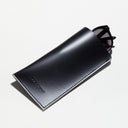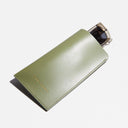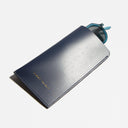At Jimmy Fairly we offer both polarised and non polarised sunglasses. But you might be wondering which is better for your eyes & vision?
We all love enjoying the summer sunshine and know that it’s important to shield your eyes from UV rays - but does a polarised lens coating make a big difference?
Whether you should wear polarised sunglasses essentially depends on your daily life and what you will be wearing your glasses for. For example, if you are often out on the water, or driving long hours, you will be much more comfortable wearing polarised glasses as they counteract glare coming from refracted light hitting off the water. However, if you are thinking of wearing some sunglasses for skiing and you’d rather not wear specialised goggles, non-polarised glasses would be better so that you will be able to see the terrain better and view the icy patches in the snow.
Still wondering what to invest in? Let’s look at the benefits of polarised sunglasses vs non polarised sunglasses in more detail…




